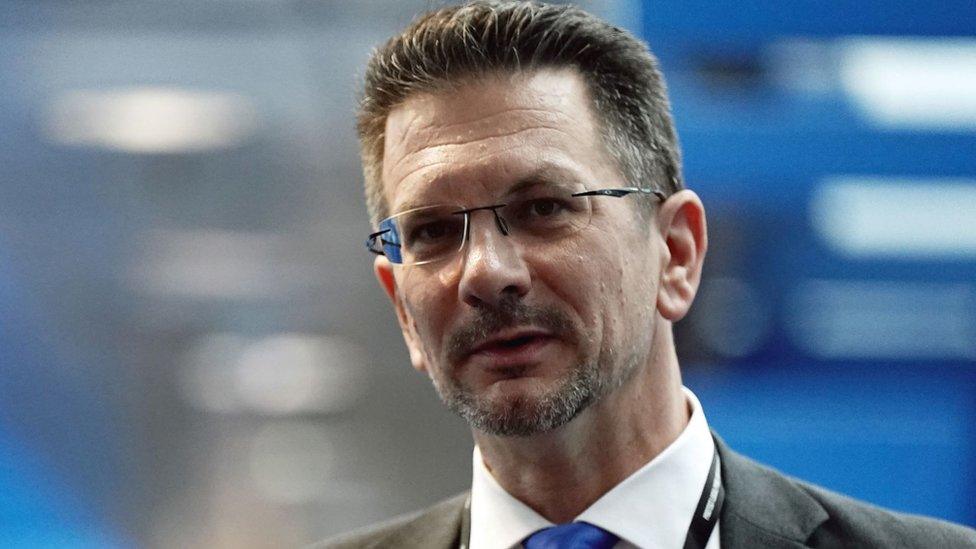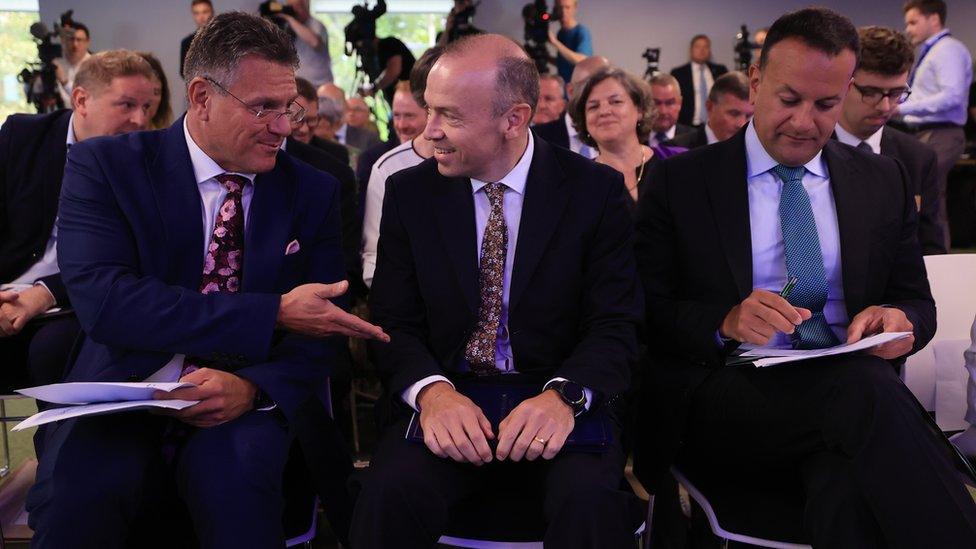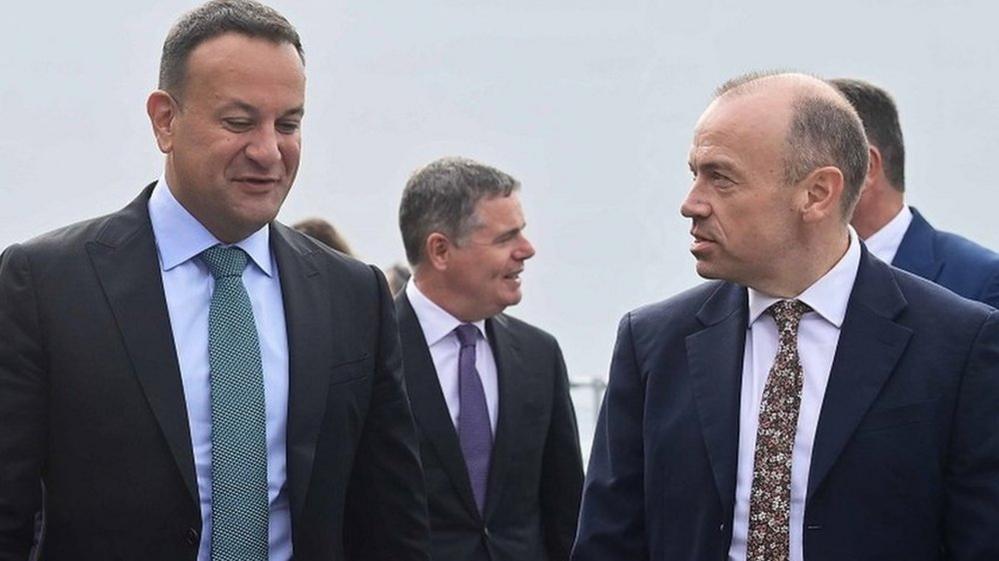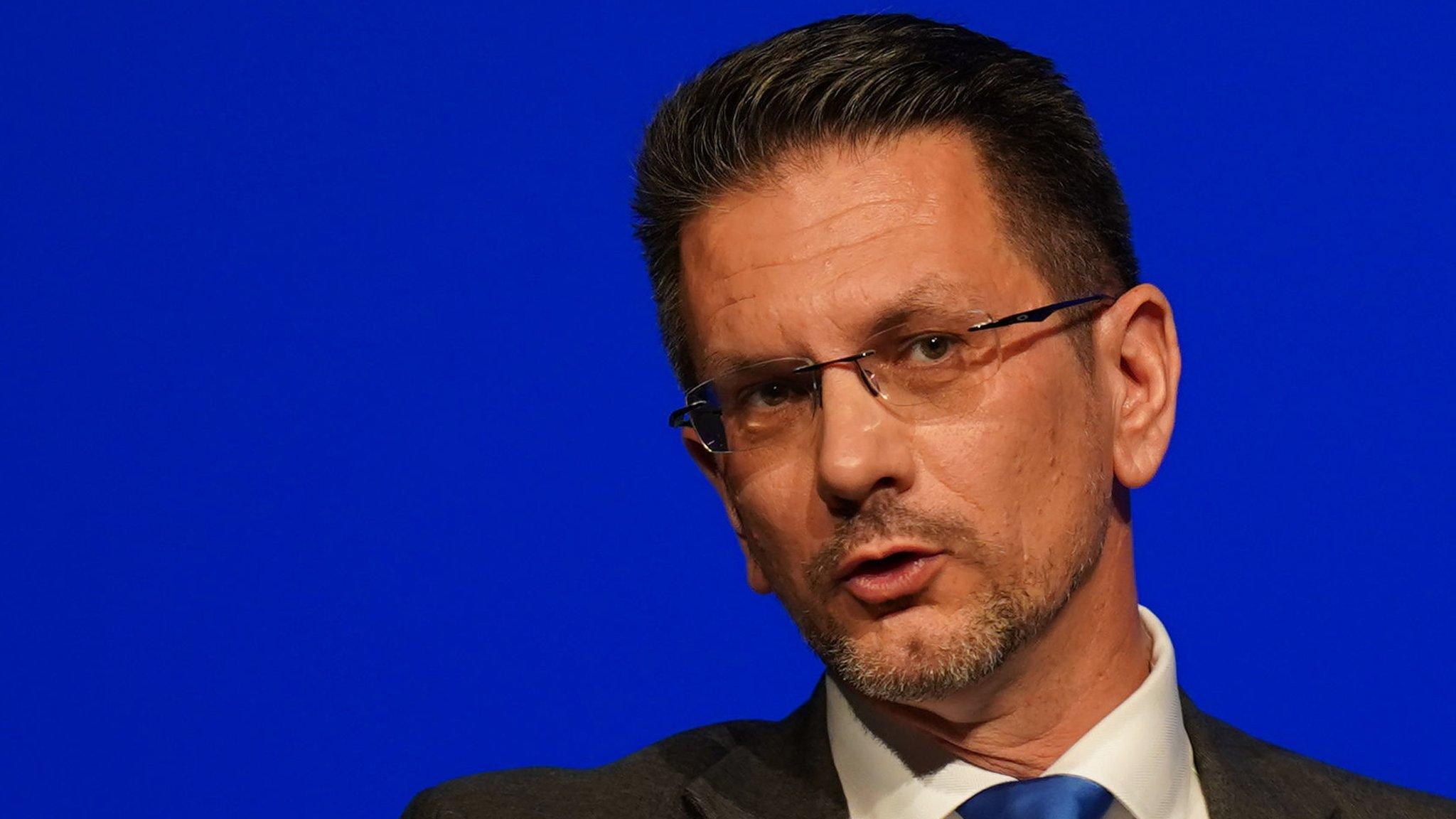DUP being pressured by hard-line unionists, says Baker
- Published
- comments

Steve Baker said if Northern Ireland was to stay in the union, it needed a government
The DUP is being pressured by a small number of hard-line unionists to stay out of government, NI minister Steve Baker has said.
The Democratic Unionist Party walked out of power-sharing last February.
This was in protest at post-Brexit trade arrangements for Northern Ireland.
Stormont's second largest party is now involved in talks with the government, aimed at securing changes it can support before re-joining an executive.
Mr Baker said those talks were in the final stages, with the outcome in "the DUP's hands".
He appealed to those he referred to as hard-line unionists, saying: "If you want Northern Ireland in the union it's going to need a government, so please give it that government."
'Go and govern'
Northern Ireland Secretary Chris Heaton-Harris said he was optimistic the DUP would return to the executive, but he would not commit to a timeline.
Asked if December was the cut-off point, he said: "When you get into the New Year you are heading towards a general election."

European Commission vice-president Maros Šefčovič, Secretary of State Chris Heaton-Harris and Taoiseach Leo Varadkar in Belfast on Monday
The DUP has insisted the Windsor Framework deal - struck by the UK government and EU earlier this year to reform the Northern Ireland Protocol - does not go far enough to address its concerns.
Northern Ireland's devolved government collapsed last year when the DUP withdrew in protest against post-Brexit trade barriers.
Mr Baker said on Tuesday it was up to the DUP to let the government know what it needed.
"If they want Northern Ireland to flourish, they just need to go and govern Northern Ireland," he said.
"We're waiting on the last bit of information from the DUP about what they want, and when they get it, we will strain every sinew to give it to them because we want them back."
But Mr Baker was critical of those he described as a "small number of opinion formers who shape what the DUP does".
"They are steering life in Northern Ireland to a degree not consistent with their status as unelected figures who merely express opinion, but put pressure on the DUP," he said.
"We now need to think really seriously about which futures are available, and anyone putting pressure on the DUP to stay out needs to ask themselves what they're trying to achieve."
'Repeatedly told'
However, the DUP hit back at the government, saying it should stop putting pressure on the party to re-enter power-sharing and instead deliver first on its promises.
The DUP MP for East Londonderry, Gregory Campbell, said that "over the past few weeks Downing Street has been repeatedly briefing the media that significant or substantial progress has been made in order to achieve what they, and we have said needs to be achieved; frictionless trade within the United Kingdom and the Irish Sea border removed".
"For weeks back in the spring, they claimed they were unsure of what precisely we wanted, despite being repeatedly told," he added.
"This led to us providing the government with a paper which they have been looking at for several months.
"The time has come for briefing designed to pressurise us to stop and delivery on what they have repeatedly promised, to happen."
Last week, Mr Heaton-Harris said talks with the party had moved forward "substantially", but on Monday the Taoiseach (Irish PM) Leo Varadkar was critical and said progress appeared to be moving at a "snail's pace".
On Tuesday, Mr Heaton-Harris said he was "comfortable" with his criticism of Mr Varadkar after accusing him of being unhelpful for saying he believed he would see a united Ireland in his lifetime and that a Plan B would be necessary if devolution is not restored soon.
He disputed a claim by the Irish government that he had not made the criticism in a private meeting with Mr Varadkar, waiting instead until speaking to the media afterwards.
- Published9 September 2023

- Published11 September 2023

- Published8 October 2022
